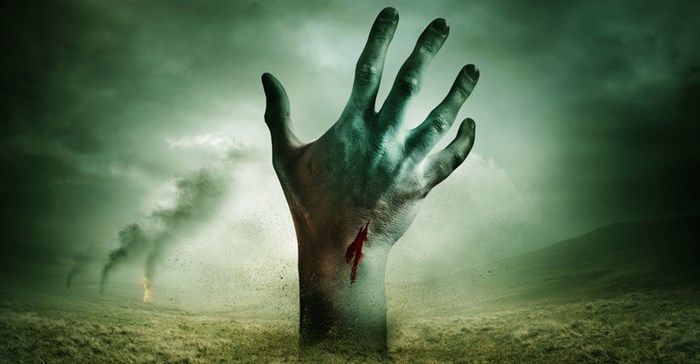With technology, there's no need to fear the walking dead

It’s a fun exercise, but I find it to be a little pointless. Not because a zombie apocalypse might never happen – sometimes when I look around my neighbourhood, I’m convinced it’s already started – but because we have the technology in place to prevent it from spiralling out of control in the first place. Don’t believe me? Let’s strap on our weapons and take a journey through your typical zombie apocalypse.
The virus emerges
It starts slowly. One night, there is a report in the news about some isolated cases of a strange virus that keeps the brain alive after death. Before you know it, pockets of infection are popping up all over the place and an epidemic is well and truly underway. In the prequel series Fear the Walking Dead, this scenario snowballs into a full-blown zombie epidemic. In real life, it’s unlikely we’d get taken by surprise, as the top minds would be closely monitoring the outbreak in real time.
Just take the West African Ebola outbreak, which saw the CDC use analytics to anticipate where the disease was likely to spread. Anyone who travelled by airplane during that time will also remember the screening processes in place at airports to detect potential Ebola carriers. Similarly, with the zombie virus, technologies like advanced video screening would be able to better identify potential infected individuals at airports and bus stops, preventing a global spread.
Walkers at your door? There’s an app for that
You typically wouldn’t see a cellphone in a zombie movie, but in the real world, mobile devices, not machetes, would make for the best weapons against the undead. You can bet that the dead rising would be a main topic of conversation on social media, making it the most effective platform to educate, inform and gather data on the threat.
The likes of Facebook Safety Check and Google Person Finder would certainly take centre stage, and a range of other digital tools would doubtlessly emerge in response to the new problems. Imagine a mobile app like Waze for zombies, using crowd-sourced information to pinpoint the safest route to take home. Or a Tinder for survivors, letting you meet up in safe places and send out a request for a rescue.
It’s not nearly as farfetched as it sounds. The CDC already uses social media to educate people on emergency preparedness and WHO has created apps to help fight Zika, Dengue Fever and other tropical diseases. What’s more, the amount of real-time data that would pass through social media would be invaluable in detecting and stopping the spread. Governments are already exploring how to use data from Facebook and Twitter to predict flu outbreaks.
Zombie-proof societies
As we can see, data is key to preventing us from descending into our own World War Z. And, as the Internet of Things takes hold in our society, the chances of a zombie apocalypse affecting us will become even more minuscule.
Take the hordes themselves, one of the most dangerous aspects of any zombie apocalypse as The Walking Dead shows. Here, we could use geospatial mapping to predict their movements. In our zombie-style IoT, drones could go around following hordes and tracking their movements, in order to warn areas in danger of being overrun.
Okay, so we’ve successfully prevented the downfall of society and ensured that casualties are minimal. But how do we get rid of the zombie virus once and for all? Here’s where wearables could shine.
It’s not exactly easy to gather patient data on a person threatening to turn into a shambling zombie at any second. But should people already have some sort of healthcare monitoring device on them before they’re bitten, real-time data would be made available to researchers without putting anyone else in danger.
Our hypothetical zombie apocalypse scenario clearly has a lot of lessons to offer around healthcare and disaster management. But any enterprise can use the same digital-first mindset to tackle their own metaphorical hordes. Zombies may be a threat, but their ultimate defeat comes from identifying and adapting to their patterns of behaviour. The same is true for any business threat, whether it’s diminishing revenue or lack of innovation.
What are the zombies facing your organisation? And how can you use digital to prevent your own apocalypse?






























